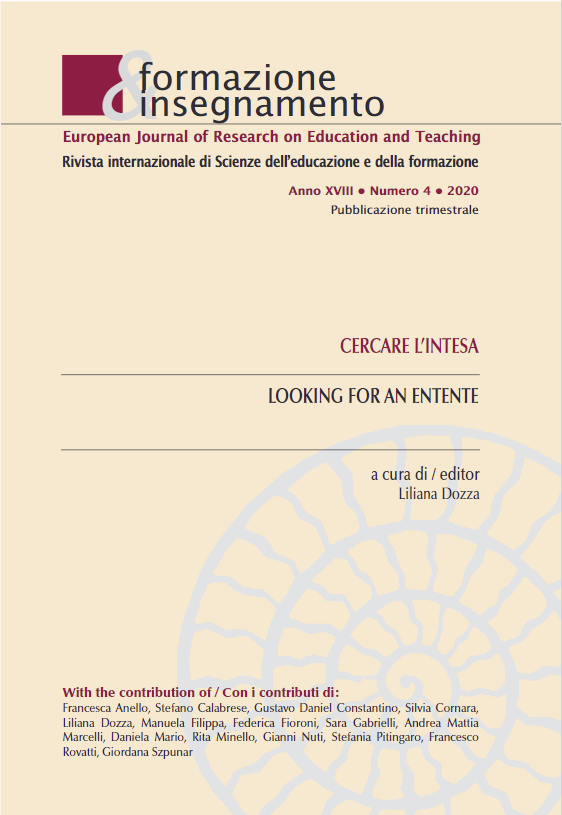Effects of Reading on Social Skills and Identity
DOI:
https://doi.org/10.7346/-fei-XVIII-04-20_04Abstract
The acquisition of reading skills is a key step in the learning process. Nonetheless the role of reading does not end in school age but recurs throughout life, stimulating creativity, intellectual processes and social skills. Why this close correlation between ficition and social abilities? The simulation of social experiences required by the reading of fiction engages the same socio-cognitive processes put in place during comprehension in the real world; such simulation would lead to the refinement of social and empathic processes, which in turn could be applied outside the storywold (Social-Improvement Hypothesis). Another possibility is that the reader of fiction acquires a greater knowledge about the mind – his own as that of others – by gaining access to a better understanding of himself (Self-Improvement Hypothesis). Therefore from an educational point of view the use of reading and narrative methodologies is fundamental, which activate interpretative and reflective processes capable of developing not only expressiveness and communicative empowerment but also socio-cognitive skills connected to empathy. and the theory of mind.
Downloads
Published
How to Cite
Issue
Section
License
Copyright (c) 2020 Pensa MultiMedia

This work is licensed under a Creative Commons Attribution 4.0 International License.
Formazione & insegnamento is distributed under Attribution 4.0 International (CC BY 4.0).
For further details, please refer to our Repository & Archiving Policy, as well as our Copyright & Licensing Terms.





